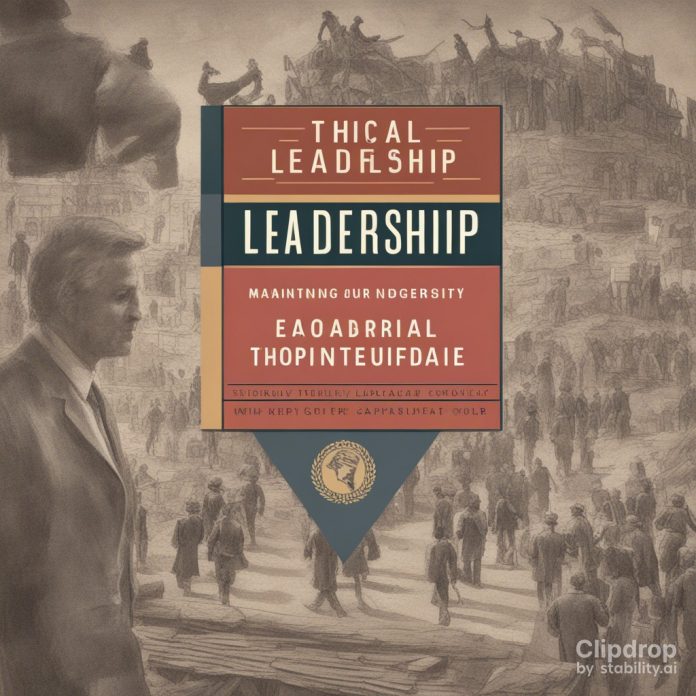Ethical leadership is the cornerstone of a successful and impactful political career. It’s not just about gaining power or achieving personal ambitions; it’s about serving the public interest with integrity, transparency, and a commitment to ethical values. In this blog, we’ll delve into the significance of ethical leadership in politics and explore strategies to maintain integrity throughout your political career.
Why Ethical Leadership Matters in Politics
Ethical leadership in politics isn’t an optional trait; it’s a fundamental requirement. Here’s why it matters:
1. Trust and Credibility:
Trust is the bedrock of any political career. Voters and constituents expect their leaders to be honest, transparent, and accountable. Ethical leaders build and maintain trust, which is essential for garnering support and maintaining public credibility.
2. Long-Term Success:
Politicians who prioritize ethics over short-term gains tend to have more sustainable careers. Ethical behavior often leads to better decision-making and a stronger foundation for long-term success.
3. Public Interest:
Political leaders are entrusted with the responsibility of representing the interests of the public. Ethical leaders prioritize the well-being of their constituents over personal or partisan interests.
4. Role Modeling:
Politicians are role models for society. When they demonstrate ethical behavior, they set a positive example for the public and future leaders.
Strategies for Maintaining Ethical Leadership
1. Clearly Define Your Values:
Before entering politics, take time to define your core values and principles. These will serve as your moral compass throughout your career.
2. Transparency and Accountability:
Be transparent about your actions and decisions. Embrace accountability for your mistakes, and learn from them. Transparency and accountability build trust.
3. Avoid Conflicts of Interest:
Identify and mitigate potential conflicts of interest. Avoid situations where personal gain conflicts with the public interest.
4. Engage in Ethical Decision-Making:
When making decisions, consider the ethical implications. Seek advice from ethical experts or mentors when facing complex moral dilemmas.
5. Uphold the Law:
Follow the law rigorously. Ethical leaders not only adhere to legal requirements but also set an example by respecting the spirit of the law.
6. Prioritize the Common Good:
Always put the common good ahead of personal or party interests. Make decisions that benefit the majority and not just a select few.
7. Engage with Constituents:
Stay connected with your constituents, actively listen to their concerns, and address them honestly. Engaging with the public fosters accountability.
8. Self-Reflection and Growth:
Regularly evaluate your actions and decisions. Acknowledge areas where you can improve ethically and commit to personal growth.
9. Lead by Example:
Demonstrate ethical behavior in your personal and professional life. Your actions will speak louder than words.
10. Seek Ethical Guidance:
Don’t hesitate to seek advice from ethical experts, mentors, or colleagues. Surrounding yourself with ethical influences can help you stay on the right path.
The Challenges of Ethical Leadership
Maintaining ethical leadership in politics is not without its challenges. Political pressures, temptations, and competing interests can test your commitment to integrity. However, it’s essential to remember that ethical leadership is not just a set of rules; it’s a mindset and a commitment to doing what is right, even when it’s difficult.
In conclusion, ethical leadership is not an idealistic concept but a practical necessity in politics. Leaders who prioritize integrity, transparency, and the public interest can have a lasting and positive impact on their communities and the world. By following the strategies mentioned above and staying true to your values, you can maintain ethical leadership throughout your political career and leave a legacy of integrity for future generations.

